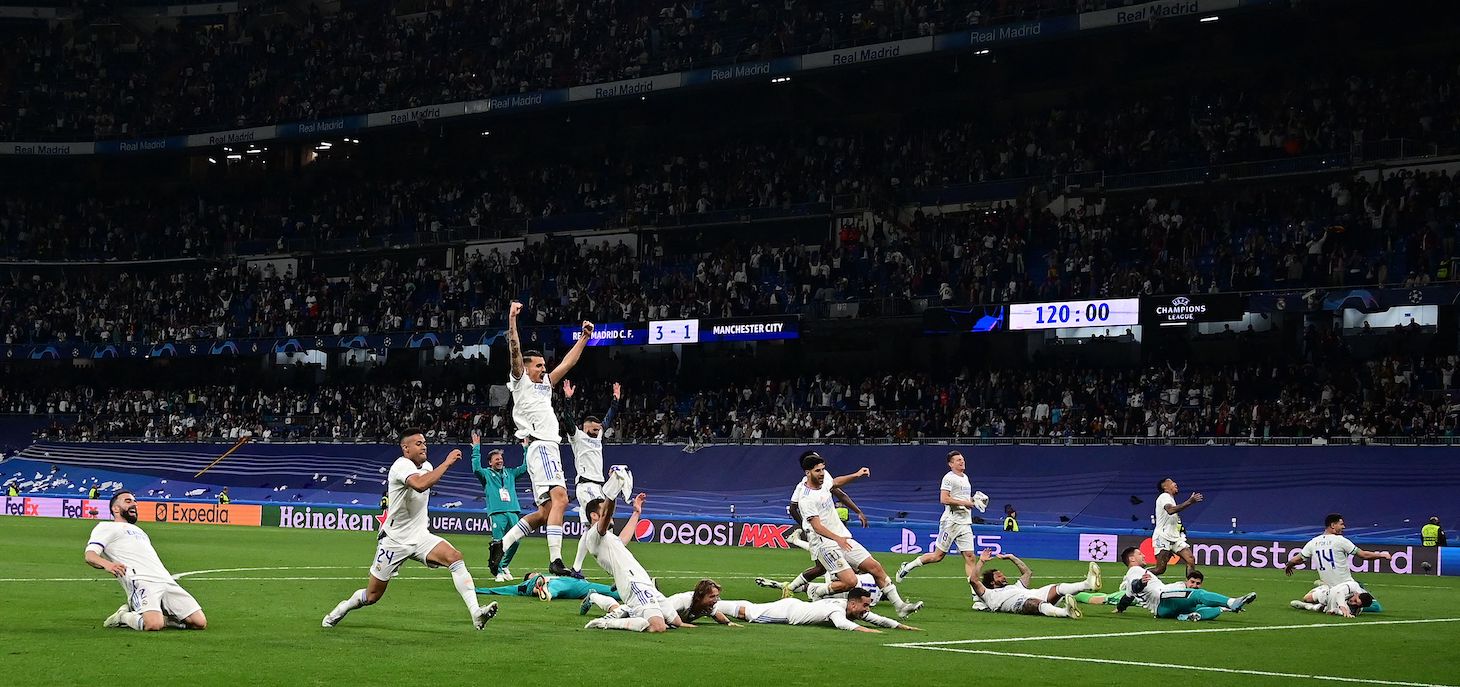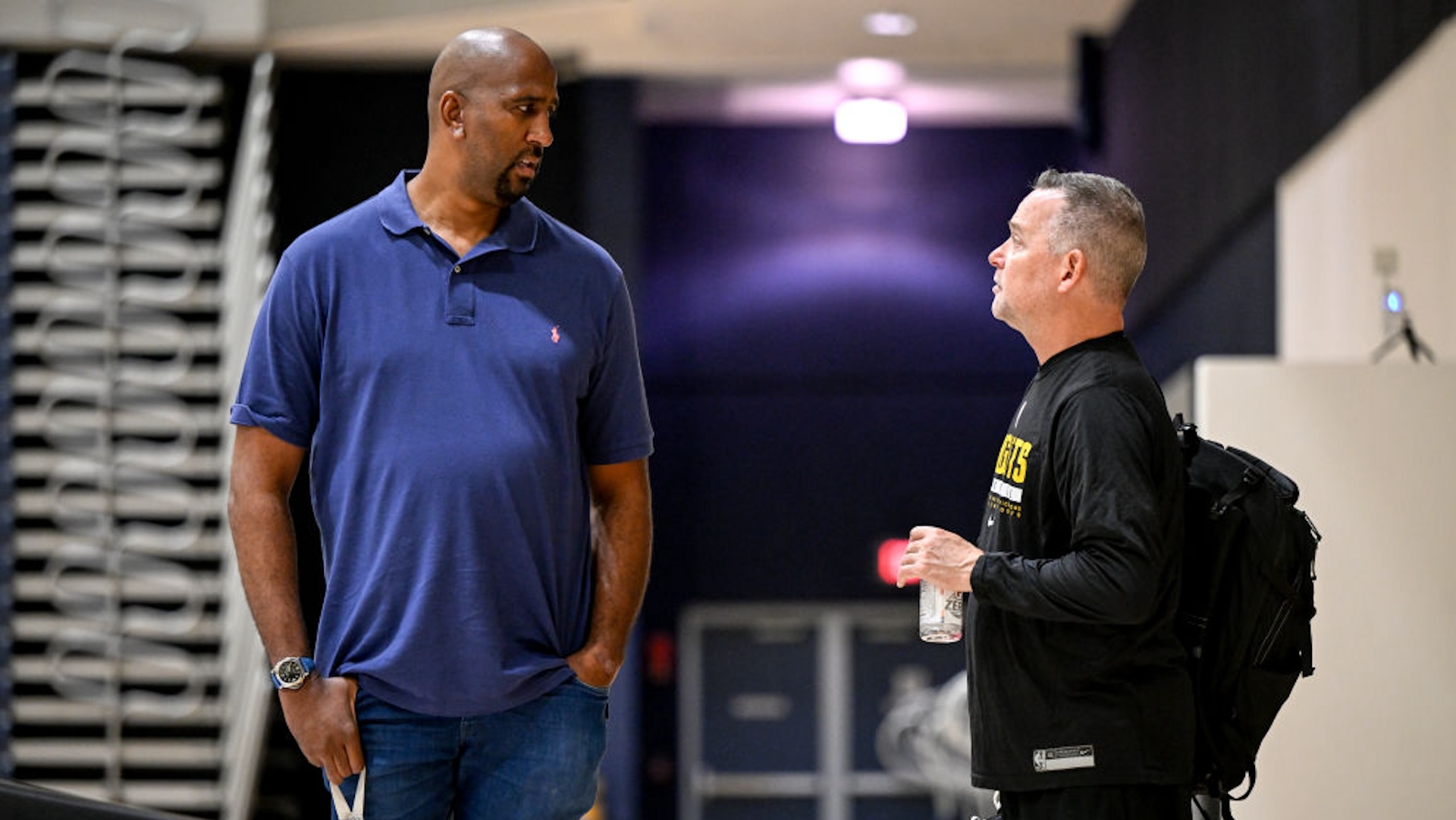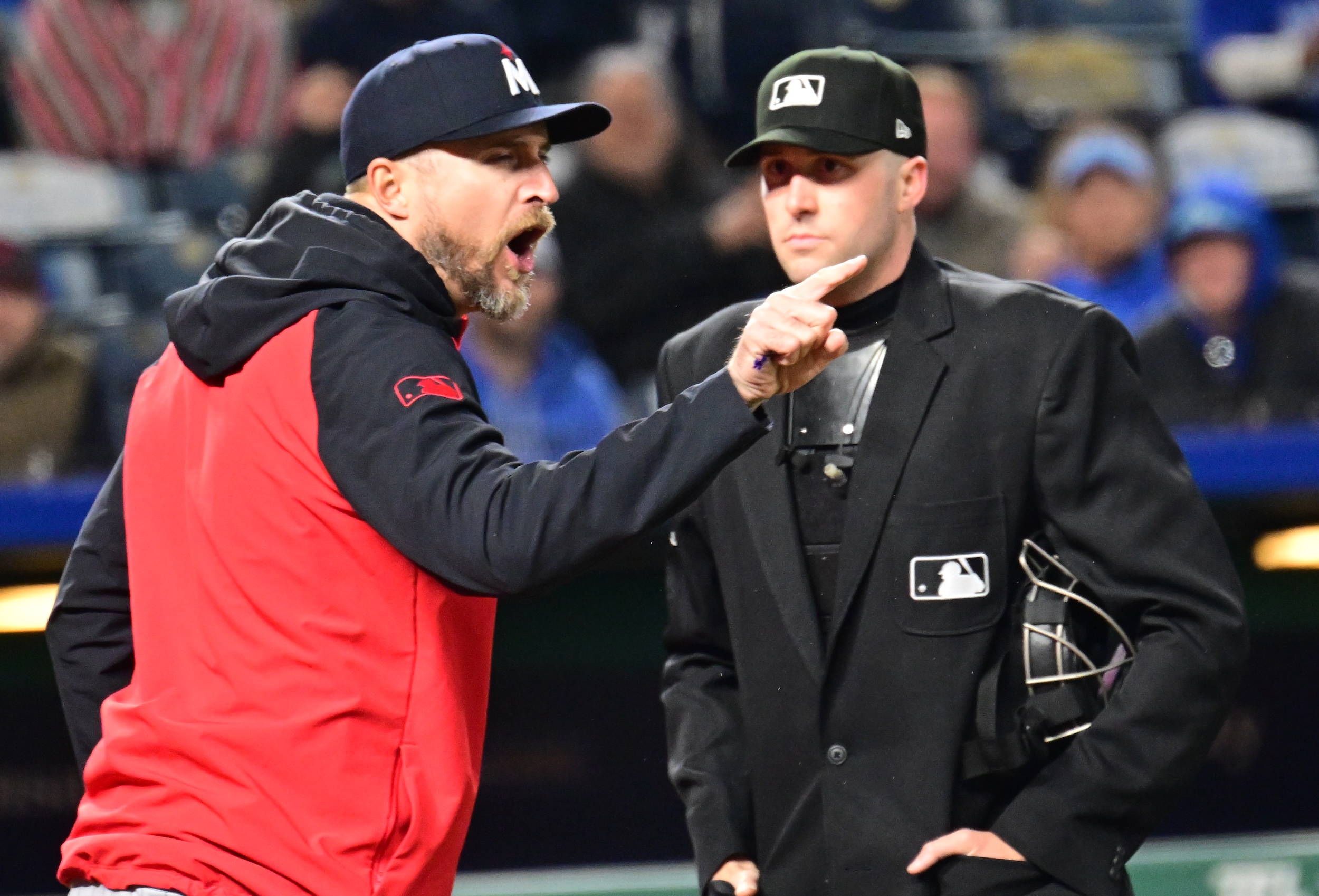Soccer is a game of talent and tactics. It is first and foremost about having better players, putting those players in a setup that maximizes their abilities, and reaping the rewards that inevitably accrue. But soccer is also a game of randomness, of fortune, and, especially, of the heart and mind. No matter how talented the players, how ingenious the managers, or how deeply ingrained the system is, nothing can override the fact that this is a low-scoring sport played by people, with all the physical, emotional, and psychological strengths and foibles that that very humanness implies. Nowhere is the heart's and mind's effect on the result more evident than in the Champions League, where the stakes and tension are highest. And no two teams better embody the importance of mastering the mental and emotional sides of the game than our Champions League finalists, Liverpool and Real Madrid.
Liverpool's and Real Madrid's respective paths to the final bear little resemblance with one another. Of their knockout round opponents—in order: Inter, Benfica, and Villarreal—the Reds have not confronted a single peer, and have instead gone into each tie as massive favorites who were expected to win with ease. That was mostly borne out. Liverpool didn't need to play particularly well to best all three rivals, with their sizable advantage in quality eventually making the difference on the scoreline across each tie's two legs.
Madrid's trip to the final in Paris was close to the opposite. In each knockout round—in order: against Paris Saint-Germain, Chelsea, and Manchester City—the Blancos went in as underdogs, and were at no point considered realistic threats to compete for the title. That too was mostly borne out; across the balance of play in each tie's two legs, Madrid was on the whole the inferior team, often overwhelmingly so. Nevertheless, for all the nameable (Karim Benzema, Thibaut Courtois, Luka Modric) and intangible (experience, luck, confidence, God Himself always seen wearing white) reasons you'd like to list, Madrid resisted what needed resisting and capitalized on what needed capitalizing, and have earned the opportunity to once again win the club's favorite trophy.
But there is one commonality to the two runs, and it could be seen in both second legs of the two semifinal matchups. That commonality is a titanium mental strength. Coming into the second leg, Liverpool had what was on paper the easier task. Having won 2–0 in Liverpool in the first match, all the Reds had to do on Wednesday was not lose big against a much less talented team. Even weathering the first 30 minutes or so without conceding a goal could very well have been enough for Liverpool to endure Villarreal's inevitable push to start the game, after which time the home team's excitement about the prospect of a huge comeback would start to transform into resignation to the loss.
But matches aren't played on paper or in the pristine environs of a video game simulation, where the team with the higher rated players can win every single time. In the real world, closing out a Champions League tie in which you have the advantage is one of the hardest things to do, precisely because of those present but concealed hearts and minds. From the opening whistle, Villarreal came out with a ferocious intensity, clearly determined to realize their miracle comeback and to a man totally convinced they could achieve it. Scoring the all-important quick opening goal in just the third minute sent the Villarreal players' and fans' spirits flying even higher, fortifying all that intensity and determination and conviction that had already made its mark.
In the face of this, mighty Liverpool looked shell-shocked. Exactly what they didn't want to happen had happened, and the blow, coupled with the emotional turbo boost it gave to everyone on the other side, left Liverpool shaken. The Reds could hardly string two passes together before turning it over and launching another dangerous Villarreal counter. Liverpool's normally cool and composed players looked bewildered, and rather than falling back on the principles of play that have gotten them so far over the past several years, Liverpool could resort only to speculative long balls aimed at springing attacks that never materialized. Liverpool looked desperate for a goal of their own to calm their nerves and reassert order, and that very desperation is what made the goal feel so far away. Villarreal completely dominated Liverpool in that first half of a match that was supposed to be the away team's coronation, and when the home team scored the tie-leveling second goal in the 41st minute, it was as shocking as it was a fair reflection of the run of play.
It does not make sense to talk about that half without centering the obvious influence of what was going on in the players' minds. After the match, manager Jürgen Klopp said it himself: "The start was really difficult. We looked like we were impressed by them. We had no real build-up and we didn’t play in the right spaces. We played into their hands. Our minds were not right. We felt the pressure." That this Liverpool team—one that has very recently won the Champions League and the Premier League and in doing so cemented itself as a legendary, era-defining team—could both feel and succumb to the pressure says less about Liverpool's mental weakness and more about the mind's incredible power over what happens on the field of play. And much more indicative of Liverpool's mental fortitude than its succumbing to pressure in the first half is the way the team reversed the dynamic in the second half.
As Klopp said after the game, "It was a football problem in the first half. And we had to solve it with football." Sure enough, it was talent and tactics that rescued the team from its mental jitters and allowed them to turn the match and the tie back in their favor. Chief among the second-half turnaround was the halftime substitution of Luis Díaz, who came on for the ineffective Diogo Jota. Díaz's come-up has been remarkable. From relative obscurity on the European scene at Porto, the 25-year-old Colombian joined one of the best teams in the world in January and immediately installed himself in its best XI. His variety of movement, self-sufficiency in dribbling, his gift for associative play, and his total self-assuredness in his ability and his decision-making is what has made him an instant sensation at Liverpool, and it's what he brought to the second half against Villarreal to turn things around. His ability to hold onto the ball and to run with it in dangerous areas prolonged those Liverpool attacks that had been so quick and aimless in the first half, giving his team a foothold upon which they could climb back into the match. I'd wager that him coming on as a substitute had an important psychological effect as well. Whereas the starters had played with the fear of losing and the guilt of letting Villarreal equalize the tie, Díaz came in faultless and free, with a clear head focused only on being the hero his team needed.
Behind Díaz and a fantastically inspired Trent Alexander-Arnold and a more characteristically patient Thiago, Liverpool managed to erase the doubts and fears of the first half and play the second as if nothing before mattered. In the 62nd minute, relief came when a Fabinho strike returned Liverpool its advantage in the tie. That goal, Liverpool's much-improved play, and Villarreal's tiring legs after expending so much energy in the first hour, all combined to flip the feel of the game. Five minutes later, Díaz scored to more or less seal Liverpool's victory. Seven minutes after that, Sadio Mané gave the Reds a third second-half goal, which completely killed Villarreal's dream and any remaining stress inside the Liverpool players' minds.
After getting off to the worst possible start, clouding their own minds with anxiety while handing Villarreal the gift of joy and excitement, Liverpool completely flipped the script and came away with an iconic victory and a spot in the Champions League final. "It feels so special because it was so difficult for us," Klopp said after the match. "Before the game, I told the boys I wanted the headlines to be the mentality monsters were in town. I wanted it from the first moment but the second half was like that. How we came back in the second half was so special." Liverpool has long had a great starting XI, and the confidence that comes from having great players who have experience winning. Now they have a great bench to go along with it, and even more confidence after having faced adversity and coming out as winners. Whether or not Liverpool goes on to win the unprecedented quadruple that is now firmly within their grasp, this team has accomplished something truly special this season, assembling a squad and building a mentality that are both very nearly perfect.
If any club knows a little something about perfect mentalities, it's Real Madrid. What can you even say about them today, after yet another literally unbelievable Champions League comeback? They play with a fearlessness that can only be achieved after having won everything several times over, after having faced huge deficits several times over and overturning them time after time, after having branded their names in history years ago so that losses carry no weight and wins can only further enrich their legacies. For the third consecutive time this tournament Madrid faced a better team, got pummeled for a stretch but stayed in it, and when they weren't killed off, they killed their opponents. I still believe that this team isn't especially good, but there may be no other team more capable of greatness.
Wednesday's second-leg against Manchester City was actually a bit of a divergence from Madrid's previous knockout round Houdini acts. For once, the Blancos were, in the main, the better team for most of the match. The first half was pretty even, though the chances Madrid created during that period were better than City's. Coming out of halftime, Madrid was clearly superior and a little unlucky not to take the lead then and there. It wasn't until after Riyad Mahrez's goal in the 73rd minute that things began to change. From that point until the end of regulation, a 2–0 City lead looked closer than a Madrid equalizer.
But the Madridistas never lost faith. There was a moment late in regulation that felt telling, when substitute Marco Asensio found himself in decent scoring position but lost the ball. The broadcast cut to a closeup of Asensio. You might've expected to see agony on his face after failing to convert what could've been one of Madrid's last good chances to change the game—the same kind of agony City players regularly evinced after almost every errant shot across both legs of this semifinal, as if they knew that each missed haymaker made it more likely that Madrid would be the one dealing the knockout shot. Instead, Asensio looked at worst mildly annoyed. In that expression, and Madrid's urgent but still controlled pressing for a goal in regulation's dying moments, you could see evidence of the mentality that has proven so effective at pulling off these monumental comebacks; the players were stressed but not panicked, impatient but not erratic—they were focused, determined, and unafraid. And like clockwork, Rodrygo's opening goal came just seconds later, and with it came the familiar white avalanche that inexorably leads to Real Madrid victory.
There is a tendency today to underplay the emotional and mental aspects of sports when talking or writing about them. It's for the most part understandable. For decades traditional sports media outlets focused almost exclusively on baseless conjecture about players' willpower and want and heart and gumption and last-shot confidence, more or less reducing what is an incredibly complex, sophisticated, and layered act of playing sports to a mere personality quiz filled out from afar. It has by and large been great that certain commentators and fans have begun to focus on the game itself and the Xs and Os that comprise it, looking for a more rigorous and grounded understanding of what happens and why.
But I think this impulse goes too far when it totally ignores the impact of what happens inside players' heads on what happens between the lines of play. Again, sports are played by people, and psychology and emotions and the like affects everything a person does. Sports cannot be reduced entirely to a box score, an expected goals stat, or an analysis of pick-and-roll rotations. All of it is informed by how the athletes feel and what they think. As the famous Jorge Valdano quote goes, "Football is a state of mind."
Which isn't to say that the heart and mind reign supreme over the rest, either. Soccer is still a game of talent and tactics, after all. And like Klopp said, right after admitting how the pressure had got to Liverpool, "It was a football problem in the first half. And we had to solve it with football." Villarreal's gameplan and the players' faith in that gameplan's effectiveness cannot be divorced from one another when looking at how successful it was, and it was Villarreal's tactical pressure on Liverpool's possession game that contributed so greatly to the psychological pressure Liverpool's players so obviously felt. The point isn't that one thing is more important than the other, but that it all simultaneously and inextricably contributes to the whole that is sports. If you don't believe me, just take it from those who would know:
Carlo Ancelotti:
— Football España (@footballespana_) May 4, 2022
"The match was even, competitive, when it seemed as if it was ending we found the last bit of energy to equalise. When we got ahead in the tie we'd already secured an important psychological advantage. That already happened to me in the final against Liverpool." pic.twitter.com/CCqYptVweX
🎙| Courtois: “I knew we would comeback. I can’t explain it.”
— Madrid Xtra (@MadridXtra) May 4, 2022
🎙| Ancelotti: “Even when Manchester City were 1-0 up, I knew we were not going to be eliminated.”
— Madrid Xtra (@MadridXtra) May 4, 2022
🎙| Ancelotti: "We are in the finals thanks to my players and our fans. The history of this club, the pride, the weight of this shirt... all of this."
— Madrid Xtra (@MadridXtra) May 4, 2022
🎙| Rodrygo: "What did I think when Ancelotti told me to come on? That I could change history again, help my team. But they scored a goal and we were dead, I can say so. Then, in the 89th minute, my first goal lifted us." @MarioCortegana
— Madrid Xtra (@MadridXtra) May 5, 2022
🎙| Diego Simeone after the final in Milano 2016: "There are people who say that Real Madrid won by luck but no, Real Madrid don't defeat you by luck, they defeat you with their history." pic.twitter.com/qusWaHJVkx
— Madrid Xtra (@MadridXtra) May 5, 2022
📲 Luka Modric on IG: "This is Real Madrid. Don't try to figure it out." pic.twitter.com/rsT7ynd0WW
— Madrid Xtra (@MadridXtra) May 5, 2022
— Madrid Xtra (@MadridXtra) May 5, 2022
Like any field of inquiry, understanding sports is a matter of interpretation. History, science, aesthetics—any of these subjects would be worse off if they limited their scope to only that which is strictly quantifiable. Sports are no different. It may be harder and riskier trying to determine what's going on in players' heads, but you can still see evidence of it on their faces, in their eyes, in their feet, and even on the scoreboard. Liverpool and Real Madrid get this, and it is their shared excellence at what happens between the lines and between the ears that has gotten them back onto the world's biggest stage to compete for its biggest prize.






